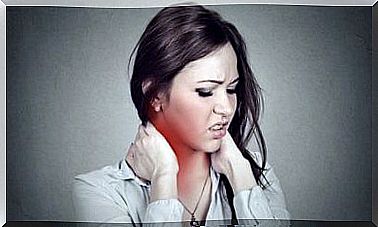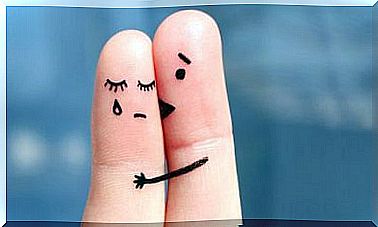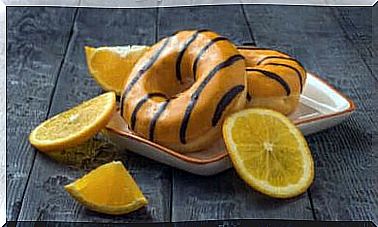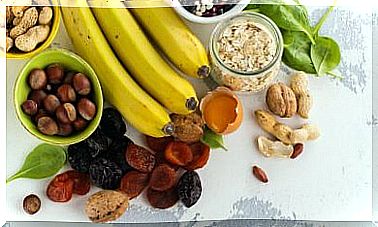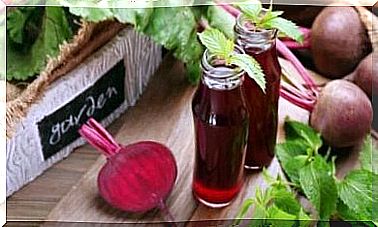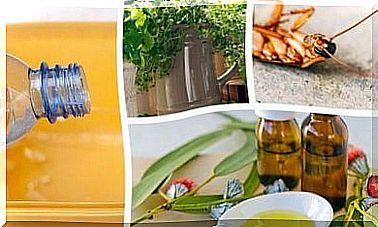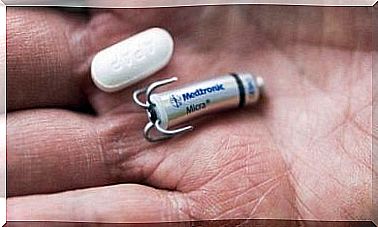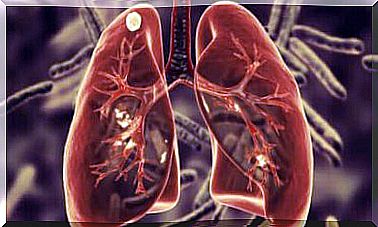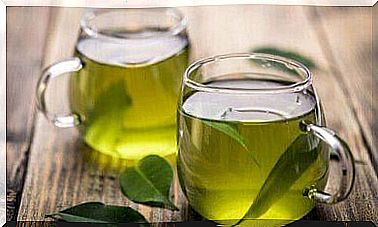Avoid These Foods If You Suffer From Fluid Retention
Fluid retention, or edema, is a very common problem caused by a one-sided diet, being too sedentary, and not drinking enough water.
Many times people think they have put on weight, but in fact, what happens is that their body does not process fluid properly.
Today we will tell you what foods you should avoid if you have this problem.
When is it fluid retention?
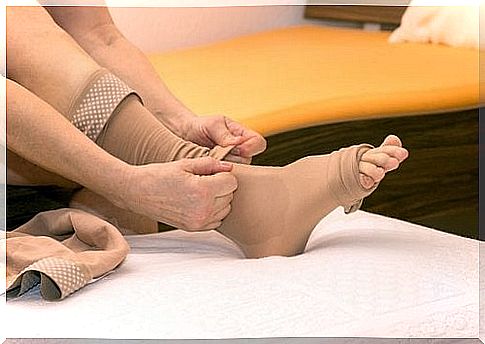
First, you should know that fluid retention involves an imbalance between the forces that regulate how fluids move through the different areas of the body. Thus, this water accumulates in the tissues of the body.
If you can not remove the water, it will accumulate in certain areas. The main factors that make the problem worse are:
- A lot of sodium in your diet
- Poor circulation from being too sedentary
Hormonal imbalance
- Lack of exercise
If you have problems with fluid retention, you can easily detect them as you will see weight gain and feel swelling in different parts of the body (especially your legs and ankles).
To test it, all you have to do is press on the skin for a few seconds. If there is a white mark that stays there for a while when you take your finger away, then it is because you have edema.
To prevent or reduce this fluid imbalance in your body, it is important to follow a diet low in sodium and increase your intake of beverages and diuretics (water, juice, vegetables, fruits, etc).
It is also recommended to exercise at least twice a week.
Foods to avoid if you have fluid retention
When you have this problem, it is not enough just to exercise and stop using salt. You need to avoid consuming certain foods that tend to increase the amount of fluid in the body.
Here are some of these foods:
Alcoholic beverages
Even if you go to the toilet while drinking it, a good amount of what you have ingested in your body (including sugar) accumulates.
Alcohol triggers fluid retention in the stomach and legs.
A glass of wine a day is not a problem, but these are: cocktails, beer or spirits with a high alcohol content several times a week.
Cold cuts
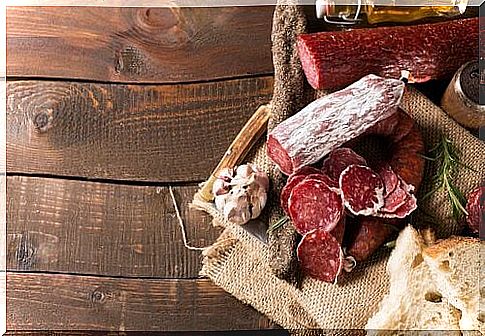
These are made with a very large amount of sodium. In addition to having a high fat content, they also cause fluid retention. When you eat cold cuts, you “coat” your artery walls and increase the risk of heart attack.
We can put very salty cheese in the same category. This is usually cheese that comes with the cold cuts on a platter, as well as sausages, smoked ham and bacon.
Ordinary snacks
Potato chips and other similar products contain a lot of salt, which helps to increase their taste.
In addition, they are addictive foods that we can not just eat a serving of … We end up eating a whole bag!
If longing for a snack, we recommend choosing sunflower seeds, nuts like walnuts, fruits, vegetables or vegetable soups (garbanzo, eggplant, etc.).
Refined sugar
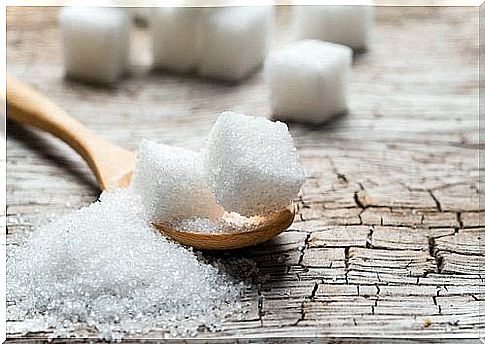
Many products you find on the shelf today contain large amounts of sugar or sweeteners.
As with salt, if these components enter your body, it cannot really remove fluids, triggering bloating.
It is advisable to reduce your consumption or look for more natural alternatives like stevia, honey or cinnamon to give your food flavor.
White flour
People who follow a diet consisting of pasta, pizza, biscuits or bread are the ones most likely to suffer from fluid retention and weight gain.
Refined flour has carbohydrates that accumulate in the body and does not let your kidneys function as they should.
These compounds increase the amount of water in the body by slowing down kidney function. Instead of white flour, choose whole wheat or reduce your intake.
You will see results in no time.
Heavily processed products

Frozen foods and prepared foods have too much salt added to the treatment. This is because the food industry uses a lot of sodium to keep their products fresh and in good condition.
We are not aware of what we are eating and even though we are unaware of it, we encourage fluid retention with these foods.
Try to stick to homemade meals, cook a little more often (even if it’s just a couple of times a week), and avoid heavily processed foods.
It can be difficult because many people’s “comfort foods” fall under this list, but step by step you will be able to nourish yourself better.
Do not accept the salt
Do not put too much salt on the food while you are making it or at the table.
A good strategy is not to put the salt grinder on the table. If it is not in front of you, it will be easier to avoid the temptation.
Another option is to season your food with herbs, lemon juice or olive oil. It will be healthier and tastier and you will lower your risk of suffering from fluid retention and other ailments.
We recommend: Fight fluid retention with Banana smoothies
What should I eat if I have fluid retention?
In addition to reducing or avoiding the consumption of the above foods that increase bloating or sodium accumulation, we recommend keeping the following foods in mind:
- Water (8 to 12 cups a day)
- Natural sweeteners (stevia, agave)
- Fruit (watermelon, grapefruit)
- Herbal tea (chamomile, green tea, mint)
Give it a try!
